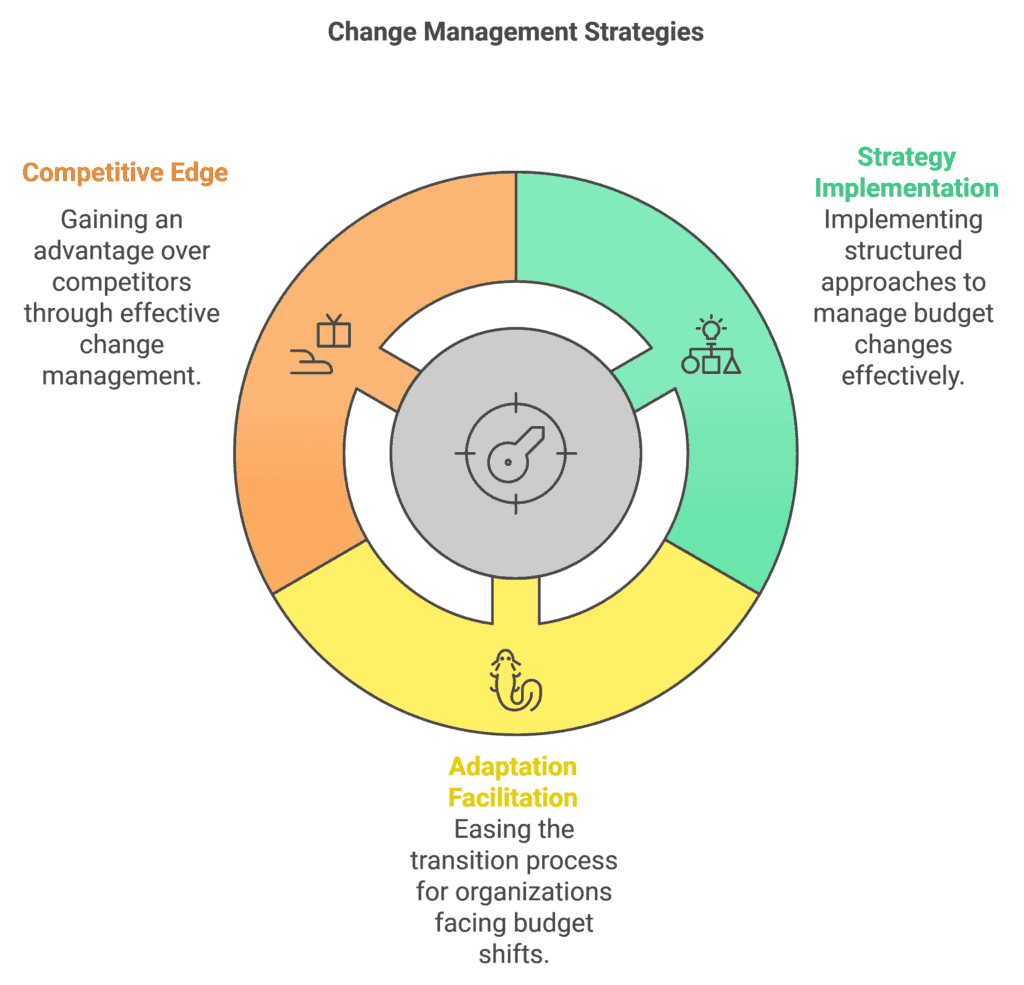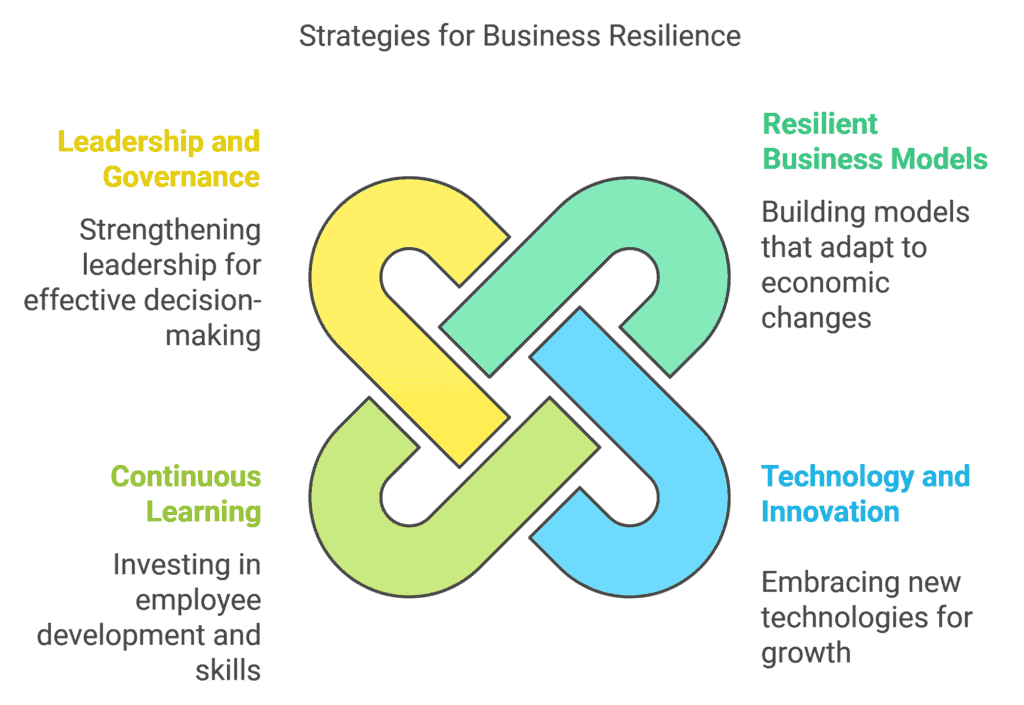The UK Budget 2024 holds immense significance for the nation’s economic landscape. It introduces pivotal changes, such as increased public investment and tax reforms, which aim to rebuild Britain. The Office for Budget Responsibility forecasts a gradual economic growth, with real GDP expected to rise by 1.1% this year and 2% next year. Strategic planning becomes crucial in this context, enabling businesses to navigate these budgetary shifts effectively. By aligning their goals with the new fiscal policies, organisations can mitigate risks and seize opportunities for growth.
Understanding the UK Budget 2024

The UK Budget 2024 introduces several pivotal changes that demand careful consideration. These changes aim to place public finances on a sustainable path while boosting capital investment and supporting public services. Businesses must understand these changes to navigate the economic landscape effectively.
Key Changes in the Budget

Overview of Tax Increases
The UK Budget 2024 outlines significant tax increases. The government plans to raise over £40 billion through these measures. This includes an increase in capital gains tax, with the lower rate rising from 10% to 18% and the higher rate from 20% to 24%. Such changes may deter investment and affect business growth. Additionally, the budget introduces additional tax relief for visual effects, aiming to support creative industries.
Changes in Wage Policies
Wage policies see notable adjustments in the UK Budget 2024. The National Minimum Wage will rise by 6.7% to £12.21 per hour for employees aged 21 and over. This increase will impact payroll costs for businesses. The government aims to support workers while ensuring fair compensation. Businesses must adapt to these changes to maintain operational efficiency.
Adjustments in National Insurance Contributions
The UK Budget 2024 also brings changes to National Insurance Contributions (NIC). The main rate of employer’s NIC will increase from 13.8% to 15% starting in April 2025. This adjustment affects both payroll and benefits in kind. The government expects these reforms to raise substantial revenue, placing additional financial burdens on businesses.
Potential Impacts on Businesses

Financial Implications
The financial implications of the UK Budget 2024 are significant. Increased taxes and NIC rates will lead to higher operational costs for businesses. Companies may need to reassess their financial strategies to accommodate these changes. The budget’s focus on sustainable public finances requires businesses to plan strategically to manage their resources effectively.
Operational Challenges
Businesses will face operational challenges due to the UK Budget 2024. The rise in wage policies and NIC rates will increase payroll expenses. Companies must adapt their operational strategies to maintain profitability. Efficient resource management becomes crucial in this context. Businesses should explore innovative solutions to overcome these challenges.
Strategic Opportunities
Despite the challenges, the UK Budget 2024 presents strategic opportunities. The government’s support for public services and trade policy capacity offers avenues for growth. Businesses can align their goals with these initiatives to seize new opportunities. By investing in technology and innovation, companies can enhance their competitiveness in the evolving economic landscape.
The Necessity of Strategic Planning
Strategic planning plays a pivotal role in navigating the complexities introduced by the UK Budget 2024. Businesses must align their objectives with the new fiscal policies to ensure resilience and growth. This section explores how strategic planning can help organisations adapt to budget changes and manage potential risks effectively.

Aligning Business Goals with Budget Changes
Setting Financial Objectives
Businesses need to set clear financial objectives in response to the UK Budget 2024. The budget introduces significant tax increases and changes in wage policies, impacting operational costs. Companies should evaluate their current financial strategies and adjust them to accommodate these changes. By setting realistic financial goals, businesses can ensure they remain profitable while complying with new regulations.
Assess Current Financial Position: Companies must understand their current financial standing to set achievable objectives.
Identify Key Budget Changes: Recognising the specific changes in the UK Budget 2024 that affect the business is crucial.
Develop Financial Strategies: Businesses should create strategies that align with their financial goals and the new budgetary environment.
Adapting Operational Strategies
Adapting operational strategies is essential for businesses to thrive under the UK Budget 2024. The rise in wage policies and National Insurance Contributions necessitates a reevaluation of operational processes. Companies should focus on efficiency and innovation to maintain competitiveness.
Streamline Operations: Businesses can reduce costs by improving operational efficiency.
Invest in Technology: Leveraging technology can enhance productivity and offset increased expenses.
Foster Innovation: Encouraging a culture of innovation can lead to new opportunities and solutions.
Risk Management and Mitigation
Identifying Potential Risks
The UK Budget 2024 presents several risks that businesses must identify and address. Increased taxes and operational costs pose financial challenges. Companies should conduct thorough risk assessments to pinpoint potential threats to their operations.
“Strategic planning is essential for managing government processes effectively.”
Analyse Financial Risks: Understanding the financial implications of the budget changes is vital.
Evaluate Operational Risks: Identifying areas where operational efficiency may be compromised helps in mitigating risks.
Consider Market Risks: Businesses should assess how market dynamics might shift due to the budget changes.
Developing Contingency Plans
Developing contingency plans enables businesses to respond swiftly to unforeseen challenges posed by the UK Budget 2024. A well-prepared organisation can mitigate risks and maintain stability.
Create Flexible Plans: Contingency plans should be adaptable to various scenarios.
Engage Stakeholders: Involving key stakeholders in the planning process ensures comprehensive risk management.
Regularly Review Plans: Businesses should periodically review and update their contingency plans to remain relevant.
Strategic planning is not just a necessity but a powerful tool for businesses facing the challenges of the UK Budget 2024. By aligning goals, adapting strategies, and managing risks, organisations can navigate the economic landscape effectively and seize opportunities for growth.
Role of Change Management in Adapting to Budget Changes
Change management plays a crucial role in helping businesses adapt to the UK Budget 2024. By implementing effective strategies, organisations can navigate the complexities introduced by the budget changes. This section explores how change management challenges can facilitate adaptation and provide a competitive edge.

Implementing Change Management Strategies
Engaging Stakeholders
Engaging stakeholders is vital for successful change management. Businesses must involve key individuals in the planning and implementation process. This engagement ensures that everyone understands the implications of the UK Budget 2024 and their role in adapting to these changes.
Identify Key Stakeholders: Companies should pinpoint individuals who influence or are affected by the budget changes.
Facilitate Open Communication: Encouraging dialogue among stakeholders fosters collaboration and understanding.
Involve Stakeholders in Decision-Making: Including stakeholders in decisions enhances buy-in and commitment.
“Strategic planning is essential for managing government processes effectively,” say industry leaders. Their insights highlight the importance of stakeholder engagement in navigating economic challenges.
Communicating Changes Effectively
Effective communication is essential for managing change. Businesses must convey the implications of the UK Budget 2024 clearly and concisely. Transparent communication helps reduce uncertainty and resistance among employees, as highlighted in change management for organizational.
Develop Clear Messages: Companies should craft messages that explain the budget changes and their impact.
Utilise Multiple Channels: Using various communication channels ensures that information reaches all employees.
Provide Regular Updates: Keeping employees informed about progress and developments maintains trust and engagement.
Leveraging Change Management for Competitive Advantage
Enhancing Organisational Agility
Organisational agility becomes a competitive advantage in the face of budget changes. Businesses must adapt quickly to the new economic landscape introduced by the UK Budget 2024. Agility enables companies to respond to challenges and seize opportunities effectively.
Streamline Processes: Simplifying processes enhances flexibility and responsiveness.
Encourage Cross-Functional Collaboration: Collaboration across departments fosters innovation and adaptability.
Invest in Training and Development: Equipping employees with new skills supports agility and growth.
Fostering a Culture of Innovation
A culture of innovation empowers businesses to thrive despite budgetary constraints. The UK Budget 2024 presents challenges, but it also offers opportunities for creative solutions. By fostering innovation, companies can develop new products, services, and processes that drive success.
Promote Creative Thinking: Encouraging employees to think creatively leads to innovative solutions.
Reward Innovation: Recognising and rewarding innovative ideas motivates employees to contribute.
Create an Open Environment: An open environment where ideas are shared freely supports a culture of innovation.
Change management is not just about adapting to the UK Budget 2024; it is about leveraging these changes for growth and success. By engaging stakeholders, communicating effectively, enhancing agility, and fostering innovation, businesses can turn challenges into opportunities.
Case Studies and Hypothetical Examples

Examining past adaptations to budget changes provides valuable insights for businesses facing the UK Budget 2024. By analysing successful strategies, organisations can learn how to navigate the current economic landscape effectively.
Successful Adaptations to Previous Budgets
Case Study 1
In 2018, a leading retail company faced significant challenges due to increased taxes and wage policies. The company responded by implementing a comprehensive strategic plan. They streamlined operations and invested in technology to enhance efficiency. This approach allowed them to offset increased costs and maintain profitability. The company also engaged stakeholders through transparent communication, ensuring everyone understood the changes and their roles. As a result, they not only survived the budget changes but also expanded their market share.
Case Study 2
A manufacturing firm encountered operational challenges following the 2020 budget adjustments. The firm adopted a proactive approach by aligning its business goals with the new fiscal policies. They set clear financial objectives and adapted their operational strategies. By fostering a culture of innovation, the firm developed new products that met changing market demands. This strategy enabled them to thrive despite the economic constraints imposed by the budget. Their success highlights the importance of strategic planning and innovation in adapting to budget changes.
Lessons Learned and Best Practices
Key Takeaways
Strategic Planning is Crucial: Businesses must develop comprehensive plans to align with the UK Budget 2024. This involves setting clear objectives and adapting strategies to meet new fiscal requirements.
Engage Stakeholders: Involving key individuals in the planning process ensures a smooth transition. Open communication fosters collaboration and reduces resistance to change.
Invest in Technology and Innovation: Leveraging technology enhances efficiency and offsets increased costs. A culture of innovation leads to new opportunities and solutions.
Strategies for Future Budgets
Build Resilient Business Models: Companies should create flexible models that can adapt to economic changes. This involves regularly reviewing and updating strategies to remain relevant.
Encourage Proactive Planning: Businesses must anticipate future budget changes and prepare accordingly. Continuous learning and development strengthen leadership and governance.
Foster Organisational Agility: Agility enables companies to respond quickly to challenges and seize opportunities. Streamlining processes and encouraging cross-functional collaboration support this goal.
By learning from past experiences, businesses can better prepare for the challenges posed by the UK Budget 2024. Strategic planning, stakeholder engagement, and innovation are key to navigating the economic landscape successfully.
Forward-Looking Strategies for Business Leaders
The UK Budget 2024 presents both challenges and opportunities for business leaders. To navigate these effectively, they must adopt forward-looking strategies that prepare them for future budget changes and encourage proactive planning and adaptation.
Preparing for Future Budget Changes

Building Resilient Business Models
Business leaders must focus on building resilient business models to withstand economic fluctuations. A resilient model adapts to changes in fiscal policies and market dynamics. Companies should regularly review their strategies and make necessary adjustments to remain competitive. By doing so, they can ensure stability and growth even when faced with challenges like those introduced by the UK Budget 2024.
Diversify Revenue Streams: Businesses should explore multiple revenue sources to reduce dependency on a single market or product.
Enhance Operational Efficiency: Streamlining operations can help reduce costs and improve productivity.
Strengthen Financial Reserves: Maintaining a healthy cash reserve provides a buffer against unforeseen financial pressures.
Investing in Technology and Innovation
Investing in technology and innovation is crucial for businesses aiming to thrive in a rapidly changing economic environment. The UK government has introduced measures to support technology adoption, including funding for tech pilot programmes and digital infrastructure rollout. By embracing these opportunities, businesses can enhance their productivity and competitiveness.
Adopt Transformative Technologies: Implementing advanced technologies can streamline processes and improve efficiency.
Foster a Culture of Innovation: Encouraging creative thinking and experimentation leads to innovative solutions and products.
Leverage Government Support: Utilising available funding and resources can accelerate technology adoption and innovation.
Encouraging Proactive Planning and Adaptation
Continuous Learning and Development
Continuous learning and development are essential for businesses to stay ahead of economic changes. By investing in employee training and development, companies can equip their workforce with the skills needed to adapt to new challenges. This approach not only enhances individual capabilities but also strengthens the organisation as a whole.
Implement Training Programmes: Regular training sessions keep employees updated on industry trends and technologies.
Encourage Knowledge Sharing: Creating platforms for employees to share insights and experiences fosters a collaborative learning environment.
Promote Lifelong Learning: Encouraging employees to pursue further education and skill development benefits both the individual and the company.
Strengthening Leadership and Governance
Strong leadership and governance are vital for navigating the complexities introduced by the UK Budget 2024. Effective leaders guide their organisations through change by setting clear objectives and making informed decisions. By strengthening leadership and governance structures, businesses can ensure they remain agile and responsive to economic shifts.
Develop Leadership Skills: Investing in leadership development programmes enhances decision-making and strategic thinking.
Establish Clear Governance Frameworks: Well-defined governance structures ensure accountability and transparency.
Foster a Visionary Leadership Approach: Leaders who inspire and motivate their teams drive innovation and growth.
By adopting these forward-looking strategies, business leaders can effectively prepare for future budget changes and encourage proactive planning and adaptation. Embracing resilience, technology, continuous learning, and strong leadership will enable organisations to navigate the challenges and opportunities presented by the UK Budget 2024.
Strategic planning and change management hold immense importance in the context of the UK Budget 2024. Businesses must take proactive steps to align their strategies with the new fiscal policies. By doing so, they can mitigate risks and seize opportunities for growth. Navigating future economic challenges requires foresight and adaptability. Companies that embrace these principles will position themselves for success in an evolving economic landscape. The UK Budget 2024 serves as a reminder of the need for continuous planning and innovation to thrive in uncertain times.





